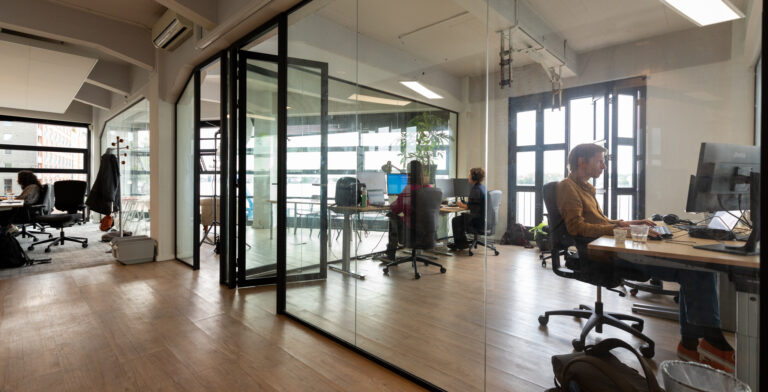Shell violates OECD Guidelines in the Philippines
Oil company refuses to negotiate about relocation of hazardous oil depot in Manila
The Dutch National Contact Point (NCP) today found Shell guilty of violating the OECD Guidelines for Multinational Enterprises at its oil depot in Manila, the Philippines.
Shell’s local subsidiary Pilipinas Shell Petroleum Corporation (PSPC) and two other oil companies operate an oil depot in Pandacan, a densely populated area of Manila. According to local residents and elected officials, the depot is a source of environmental hazards and is a safety risk for residents in the surrounding neighbourhoods. In 2006, Manila-based Fenceline Community for Human Safety and Environmental Protection, in cooperation with Friends of the Earth and Milieudefensie, filed a complaint with the Dutch government regarding PSPC’s violation of the OECD Guidelines. The groups accused Shell of improper political involvement, insufficient communication with local communities, and violation of health and safety standards in the period 2002-2006.
"Shell has again demonstrated in this case that it is naive to assume that companies will voluntarily place social and environmental interests above their own short-term economic interests. Reforms must be made to ensure that compliance with the OECD Guidelines is no longer optional", states SOMO researcher Joseph Wilde who had an advisory role in the case.
More than three years after the filing of the complaint, the Dutch NCP issued a final statement upholding part of the complaint. The NCP ruled that PSPC violated the Guidelines with respect to informing neighbouring communities and regarding disclosure of information about environmental and safety impacts, noting, “the high standards for disclosure of non-financial information, including environmental reporting, as encouraged by the OECD Guidelines have not been met in this specific instance”. The NCP further states that “community members are generally unaware of specific plans to mitigate hazards or respond to emergencies brought about by oil depot operations”. The NCP makes recommendations to PSPC to improve its conformity with the OECD Guidelines regarding information disclosure.
Although the NCP failed to investigate the environmental health and safety situation during 2002-2006 to which the complaint referred, the final statement concludes that the health and safety situation around PSPC’s portion of the depot is currently in line with international standards. However the NCP was concerned by the fact that PSPC’s recent improvements were not made as a matter of good practice or desire to be in conformity with OECD standards, but rather simply because PSPC was forced by local authorities. The NCP further emphasised that it “cannot confirm that PSPC operated in accordance with the strictest environmental and safety standards prior to [2006]”.
The NCP did not uphold the complainants’ allegation that PSPC had been improperly involved in local political decision making despite sworn statements by local elected officials that such had been the case.
Paul de Clerck from Friends of the Earth International states that “Shell always says that they apply the highest environmental and transparency standards worldwide. The NCP statement has clearly shown this to be untrue. Shell does not respect the OECD Guidelines as it cares more about profit making than the interests of its neighbours”.
The NCP’s priority was to mediate a compromise between Shell and the complainants on the relocation of the oil depot to a safer place outside Manila, but the NCP failed in this aim largely due to Shell’s obstructive behaviour. The NCP laments, “The conditions imposed on the NCP by Shell on sharing information with the notifiers interfered with the NCP’s ability to probe for mutually acceptable solutions…The NCP was surprised by (and regrets) PSPC’s reluctance to share more information with its stakeholders”.
“Shell completely disrespects both the NCP and its neighbours. They were obstructive all through the process. Throughout the entire NCP process Shell continued to lobby and advertise for staying in Pandacan” according to Vladimir Cabigao from Social Justice Society in Manila.
The NCP has proven itself ineffective and unable to broker a deal to solve the problems in Manila because it cannot force Shell to come to the negotiating table or improve its performance. “This case proves that voluntary OECD Guidelines do not work. The NCP was powerless towards the whims of a corporation like Shell. We need international standards for companies to make sure that they are accountable for problems they cause in developing countries” according to Anne van Schaik of Milieudefensie.
SOMO and OECD Watch played an advisory role to Milieudefensie throughout the procedure.
More information on the case: Fenceline Community and FoE NL vs. Royal Dutch Shell(opens in new window)







